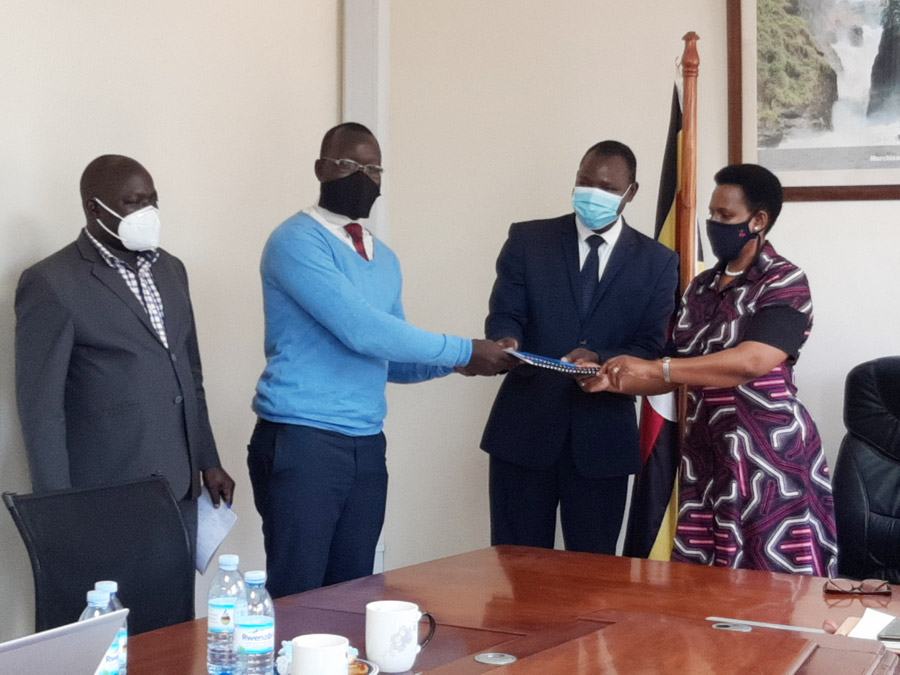USAID/UGANDA COMBATING WILDLIFE CRIME
ACTIVITY

KAMPALA, Uganda: On 14th December 2020, the Ministry of Tourism, Wildlife and Antiquities launched the development of an electronic CITES (Convention on International Trade in Endangered Species of Wild Fauna and Flora) permit system to support regulation of legal international trade in wildlife and wildlife products in Uganda. The electronic permit system will be completed by the end of April 2021. It aims to facilitate issuance of electronic permits and licenses for international trade in specimens of both CITES-listed and non-listed species.
This initiative has been made possible with support from the USAID/Uganda Combating Wildlife Crime (CWC) Activity implemented by Wildlife Conservation Society (WCS) working in collaboration with African Wildlife Foundation, The Royal United Services Institute and Natural Resource Conservation Network.
As a party to CITES, Uganda’s Ministry of Tourism, Wildlife and Antiquities is mandated to ensure that CITES-listed species are traded legally through the issuance of permits, in consultation with Uganda Wildlife Authority and other CITES scientific authorities whose responsibility is to ensure that trade in particular animal or plant species is not detrimental to their survival in the wild.
Currently, Uganda uses a paper-based system of certification and permit issuance. Illegal wildlife traders and traffickers forge CITES documentation and signatures of designate authorities in addition to taking advantage of Uganda’s weak systems and rampant corruption to evade surveillance at points of exit. Due to lack of a proper verification system, such permits often pass without notice. Additionally, the various CITES focal points and law enforcement agencies have no proper means to share real-time information. This threatens populations of some of the most iconic wildlife species through illegal wildlife trade that undermines Uganda’s tourism revenue earnings and national security.
Speaking at the system development inception meeting, the Permanent Secretary of Ministry of Tourism, Wildlife and Antiquities, Ms. Doreen S. Katusiime appreciated USAID and WCS for their commendable efforts in wildlife conservation. She emphasized the critical role that the e-permitting system will play in regulating the trade and sale of wildlife products, stating that “the development of the system will make work efficient and easier”.
“The transition from a paper-based to an electronic-based system will strengthen the capacity of the ministry in handling and processing of CITES permit applications, facilitate collation and reporting on wildlife trade to the CITES Secretariat, and provide critical information needed to deter, detect and prosecute wildlife crimes,” added Geoffrey Mwedde, Chief of Party of USAID CWC Activity.
“The new system will involve strengthening the features of the permits; improve accountability and transparency in the permit system; and provide instant access to all pending and issued permits. Customs departments and border points across the globe will be able to verify CITES permits in an instant using a quick response (QR) code embossed on the permit, hence improving the monitoring of legal international trade in wildlife and wildlife products,” said David Ocen, Head of Technical Operation at COSEKE Uganda Ltd. — the IT solutions service provider that will be developing the electronic permit system.